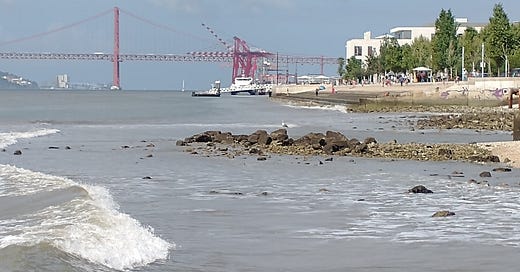Moving to another country is a multi-step process. We've lost count of the number of times in the past six months that we've thought, "This is exactly like applying to college." So if you're familiar with the admission process at US colleges and universities, you have a leg up on moving abroad 😄.
The first thing we did was decide where to go. That alone was enlightening. We naively assumed the world was our oyster, that we could move to any country we wanted. Not so much. Turns out not everywhere is eager to have just anyone up and move there. (Why this was a surprise given the nature of the current US immigration debates is a fair question.)
We started by looking at Australia, New Zealand, and the UK - places where English is the official language and where we'd either been or thought we'd like to explore. Turns out those are among the more difficult countries to gain entry to - the Ivy League nations, if you will - especially if the plan is to retire there rather than work. In short, it's helpful to have skills those countries need. In short, we don't. So we moved on.
Our next interest was pretty much anywhere else in the Anglosphere (neither of us are what you would call linguists). These are more akin to NESCAC schools, wanting a lot of what the others do - just maybe not quite as much. Seriously disheartened, we retreated to our forte, list-making spreadsheets.
Enter Portugal.
Just google "best countries to retire to" and you'll see (many) reasons why. A non-exhaustive list includes: great weather; high degree of English, especially in the major cities; cost of living; safety; healthcare; relative straightforwardness of the application process.
Once we made that call, it was time to start assembling documents for our visa applications. Here's where things get a bit technical.
Anyone with a US passport can visit nearly any country as a tourist. Most countries are fine with that for up to 90 days. If you want to legally stay longer than that, immigration services gets involved. That's where the application process comes in.
We have applied for and received visas. (Note: there are multiple kinds of visas, which we'll touch on later.) As stated in a previous post, these documents are physically attached to our passports. Our visas do two things. They:
got us an appointment with SEF, the Portuguese immigration services agency, and
allow us to legally remain in Portugal until those appointments, which are in October (Amy) and November (Scott) - more than 90 days after our June arrival.
At our SEF appointments we will need to present a few documents and one of two things will happen. We will be told either:
"Time to leave Portugal - don't let the door hit you on the way out" or
"You are allowed to stay here another two years."
It feels a bit like receiving approval for a visa is akin to getting a likely letter from a college admission office. Unless we actively do something wrong, we'll be allowed to stay once our SEF appointments roll around.
That "permission to stay" comes in the form of a residency permit. This is a physical card that we'll get in the mail. The law requires that all Portuguese citizens and residents carry theirs as identification. At present, we are neither citizens nor residents as we do not have this card.
We can renew that residency permit every two years. In five years, we can apply to be permanent residents of Portugal and in six years we can apply for Portuguese citizenship.
Taking that last step does not negate our US citizenships - we would be dual citizens - and would also provide us with European Union passports, making travel in certain parts of the world a little easier. It also requires that we pass a language test.
This post is getting long. Let's take a break; we'll reconvene in a few days with some specifics.
That's all for now.
Love from Lisbon!
Scott and Amy






Ooh! An EU passport! That's a dream of mine!